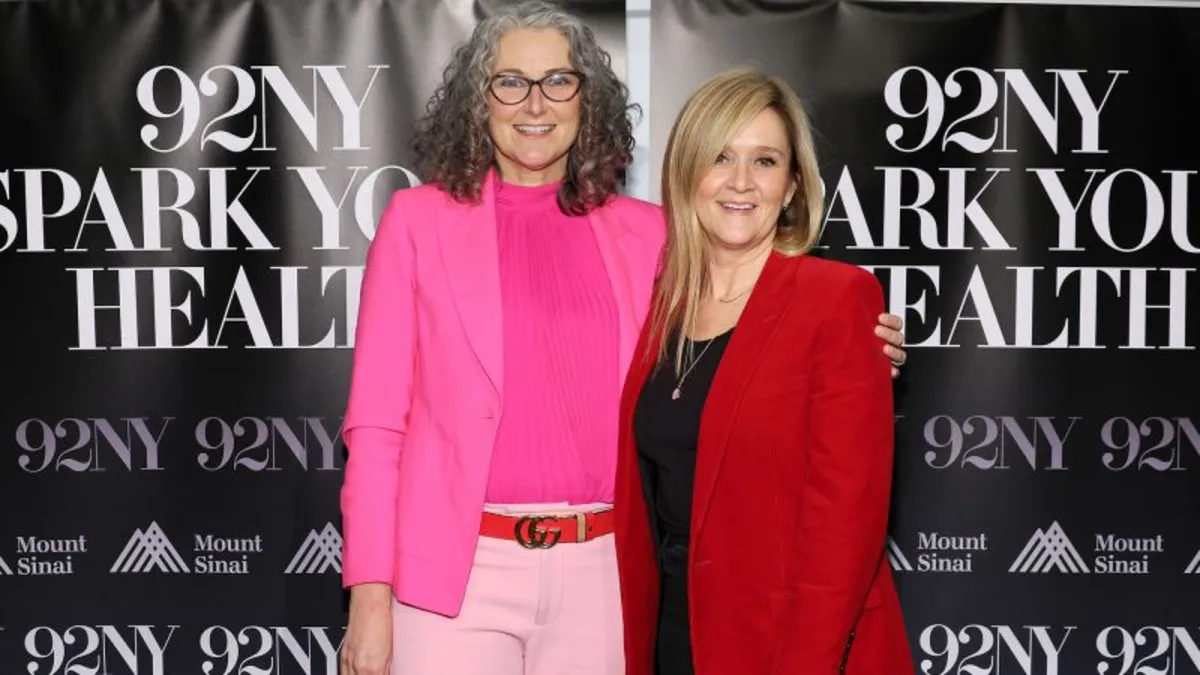
Menopause is a natural biological process that marks the end of a woman's reproductive years. During this transition, women may experience a range of symptoms including hot flashes, night sweats, irregular periods, and mood swings. It's essential to understand that these changes are normal, yet discussions around menopause, particularly the phase leading up to it known as perimenopause, have often been shrouded in secrecy and stigma.
Historically, conversations about menopause have been limited, leaving many women feeling isolated and confused. Comedian Samantha Bee, who has shared her own experiences on the podcast Chasing Life With Dr. Sanjay Gupta, highlights this issue. She recalls feeling overwhelmed by changes in her body at the age of 46, as she juggled the stress of her new show, "Full Frontal." Bee experienced symptoms such as irregular periods, hair loss, and emotional turmoil, ultimately realizing she was in perimenopause only after consulting her gynecologist.
Bee’s journey emphasizes the need for open conversations about menopause. She believes that gaining a better understanding of this stage of life has been crucial for her well-being. "Just saying the words out loud and normalizing it is vital," she states. "It literally happens to 50% of the population." Finding a supportive community can help women navigate this transitional phase more comfortably.
Dr. Jen Gunter, an expert in women's health and author of The Menopause Manifesto, sheds light on the complexities of the menopause transition. She mentions that symptoms can be nonspecific and may be dismissed, leading women to remain unaware of their condition until they are deeply entrenched in it. Dr. Gunter advocates for better education about menopause, noting that many women are left in the dark due to a lack of representation in cultural conversations.
Menopause signifies the end of ovulation, with a gradual decrease in estrogen and progesterone levels. This phase is not linear; many women experience chaotic hormone fluctuations leading up to menopause, often likened to "puberty in reverse," according to Dr. Gunter.
The menopause transition generally starts around the age of 45, with the average age of menopause being 51. Symptoms can vary greatly; some women may start experiencing symptoms in their early forties, while others may not face them until their late forties or early fifties.
A diagnosis of menopause is confirmed when a woman has not had a period for a full year. Dr. Gunter clarifies that menstrual irregularity is common during the transition, and while blood tests are not necessary for diagnosis, they may be required for younger women experiencing irregular periods to rule out other conditions.
The symptoms of menopause can vary widely among individuals. Common experiences include irregular periods, hot flashes, night sweats, and emotional changes such as depression or brain fog. Additionally, menopause can increase the risk of conditions like osteoporosis, diabetes, and heart disease, making regular health screenings essential.
For many women, hormone replacement therapy (HRT) is considered the gold standard for alleviating symptoms like hot flashes and night sweats. Dr. Gunter advises that women should consult with healthcare providers to determine whether HRT is appropriate for their specific needs. Lifestyle changes such as maintaining a balanced diet, exercising regularly, and avoiding smoking can also play a pivotal role in managing symptoms.
The conversation around menopause and perimenopause is evolving, with more women like Samantha Bee sharing their stories and experts like Dr. Gunter advocating for better understanding and support. By normalizing discussions about menopause, we can empower women to navigate this significant life transition with confidence and knowledge.
To explore more about the menopause experience and listen to insightful discussions, check out the podcast Chasing Life With Dr. Sanjay Gupta and join the growing movement to destigmatize menopause.